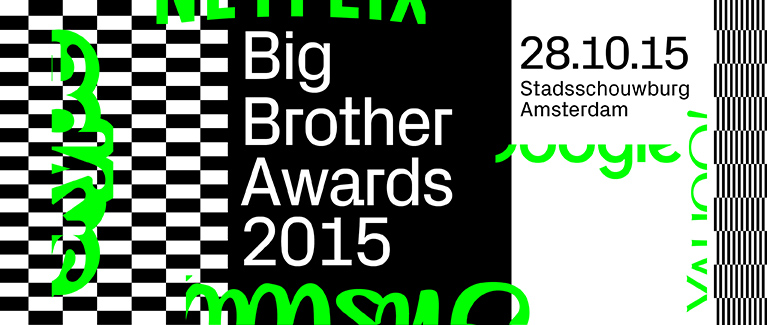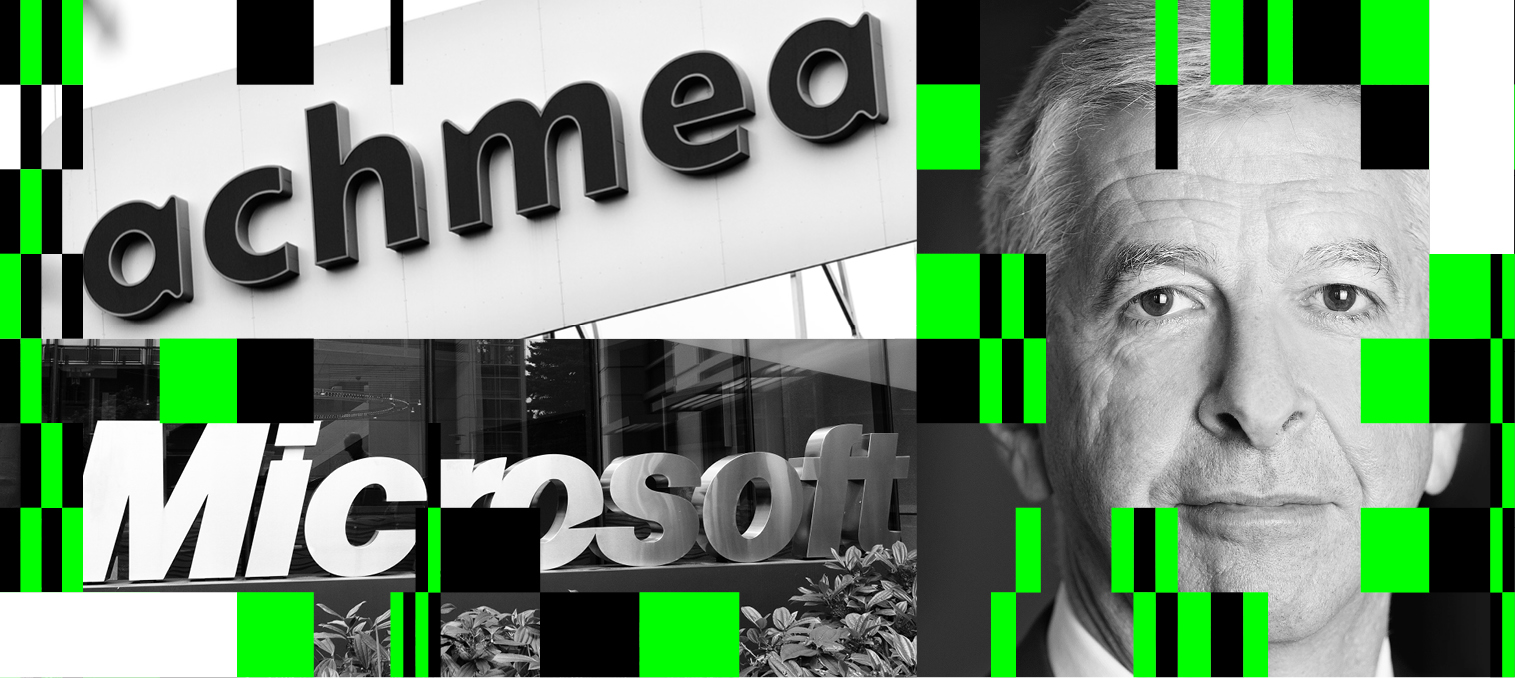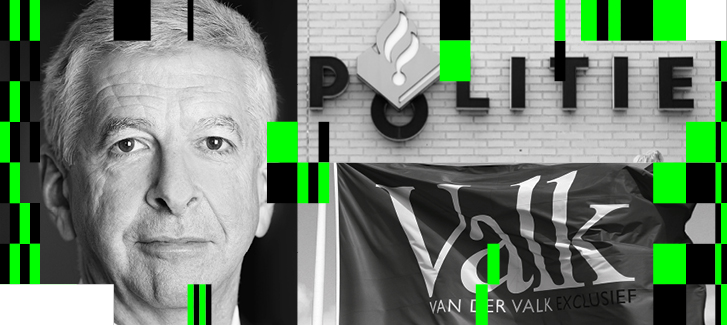-
Let the countdown begin: all nominees for the Dutch Big Brother Awards
22.10.2015 The nominations for the Dutch Big Brother Awards 2015 are officially closed. The contenders for both the Audience Award as the Expert Award are determined. And from now on it gets really exciting! So we can count down until October 28, the day when the winners will be announced in Amsterdam.
The nominations for the Dutch Big Brother Awards 2015 are officially closed. The contenders for both the Audience Award as the Expert Award are determined. And from now on it gets really exciting! So we can count down until October 28, the day when the winners will be announced in Amsterdam.Nominees Audience Award
 The public blames Achmea, the insurer, that it choses big data over solidarity. Basing premiums on whether a customer does or does not share information from his living room or car, means it will be applying price pressure. That makes it very difficult for customers to refrain from participating. Privacy will cost Achmea’s costumers dearly.
The public blames Achmea, the insurer, that it choses big data over solidarity. Basing premiums on whether a customer does or does not share information from his living room or car, means it will be applying price pressure. That makes it very difficult for customers to refrain from participating. Privacy will cost Achmea’s costumers dearly.The public is not happy about the privacy settings for Microsoft’s Windows 10. One new operating system later… and Microsoft no longer lags behind when it comes to privacy violations. A whole lot of data are collected about you and your usage. From typed and spoken text to the content of your address book, the websites you visit and your location. In addition, Microsoft links your profile to an advertising identifier that is also accessible to adbrokers, websites and browsers, as well as to software and app builders. The fact that it remains unclear what types of data are exactly involved, only makes things worst.
The Dutch Minister of the Interior, Ronald Plasterk, is working on a state snooping law, but refuses to listen. A lot of people are worried about his proposal for a new Intelligence and Security Services Act. First of all, the public is worried about the power the proposal awards the secret services to, on a massive scale, snoop on our communication. But Plasterk also owes his nomination to the fact that the foundation of the necessity of the act is considered far below the mark. What research is the proposal based on?
Nominees Expert Award
 The chief of the National Police Force is nominated by experts for wanting to use Predictive policing’: the use of (big) data to predict criminal behavior and, when possible, intervene before a crime is committed. Placing this method at the core of their practice, the police targets ‘unusual behavior’ instead of ‘criminal behavior’. And to be able to make predictions, the police needs a lot of data. Data collection becomes an end in itself.
The chief of the National Police Force is nominated by experts for wanting to use Predictive policing’: the use of (big) data to predict criminal behavior and, when possible, intervene before a crime is committed. Placing this method at the core of their practice, the police targets ‘unusual behavior’ instead of ‘criminal behavior’. And to be able to make predictions, the police needs a lot of data. Data collection becomes an end in itself.The Van der Valk hotel in Hengelo, the Netherlands is nominated because it voluntarily and systematically shares their guest lists with the police. Tthe police already has the power to ask a hotel for information about its guests in the context of a concrete investigation. That should be enough. It is still not certain what happens with the registrations. Whereas one police spokesperson has been quoted saying that they only use the guests’ information “if a particular investigation calls for it”, another spokesperson said the police in Hengelo and Enschede “perform random checks” on the lists.
After the audience already nominated Ronald Plasterk, the Dutch Minister of the Interior, the experts duplicated the effort. They heckle the increased freedom of movement the security services is granted. They are furthermore irritated by the, in their eyes unwarranted, nondisclosure of tap statistics and the unlawful tapping of lawyers.